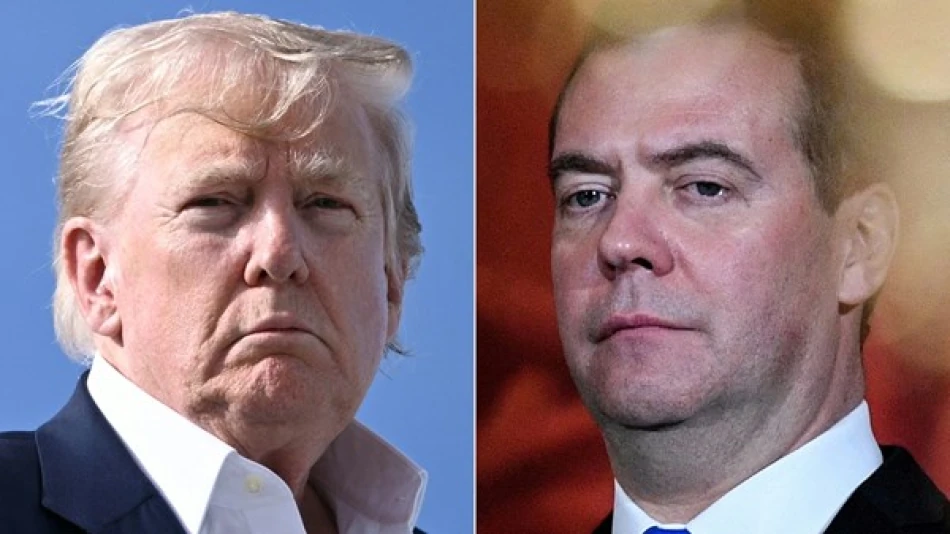
Trump Orders Deployment of Two Nuclear Submarines in Response to Russian Rhetoric
Trump Deploys Nuclear Submarines in Direct Response to Russian Security Official's War Threats
President Donald Trump ordered the deployment of two nuclear submarines on Friday following what he described as "extremely provocative" statements from former Russian President Dmitry Medvedev, who characterized Trump's Ukraine deadline as a step toward war. The submarine deployment marks one of the most direct military responses to Russian rhetoric in the early days of Trump's second presidency.
Escalating Rhetoric Triggers Military Response
Trump announced the submarine deployment on his Truth Social platform, stating he acted based on Medvedev's "extremely provocative statements" and suggesting there might be "more to it" than the public comments indicated. Medvedev, currently serving as deputy chairman of Russia's National Security Council, had earlier posted on X that Trump's deadline for Moscow to end the Ukraine crisis constituted a "threat and a step toward war."
"Words matter greatly, and they can often lead to unintended consequences. I hope this won't be one of those cases," Trump wrote, signaling both resolve and caution in his approach to the escalating tensions.
Strategic Implications of Nuclear Posturing
Breaking from Previous Diplomatic Patterns
The submarine deployment represents a significant departure from typical diplomatic responses to Russian provocations. Unlike economic sanctions or diplomatic protests, the decision to position nuclear assets demonstrates Trump's willingness to match military rhetoric with concrete strategic moves. This approach contrasts sharply with the gradual escalation patterns seen during previous administrations.
Medvedev's Role as Moscow's Voice
Medvedev has emerged as one of Russia's most hawkish voices since the Ukraine conflict began, often making statements that exceed even President Putin's public rhetoric. His current position as deputy security council chairman gives his words particular weight in Moscow's power structure, making Trump's response a calculated message to Russia's security establishment rather than merely personal criticism.
Market and Global Security Ramifications
Defense contractors and nuclear technology stocks are likely to see immediate impact from this escalation, while energy markets may experience volatility as investors price in heightened geopolitical risks. The deployment also signals to NATO allies that Trump's approach to Russia will involve direct military positioning rather than relying solely on alliance frameworks.
For global security analysts, the speed of Trump's response—moving from rhetoric to submarine deployment within hours—suggests a more aggressive posture toward Russian threats than many anticipated. This could reshape how both Moscow and Washington calculate their next moves in the Ukraine crisis.
Historical Context and Precedent
Nuclear submarine deployments as diplomatic tools recall Cold War-era brinksmanship, but the public nature of Trump's announcement breaks from traditional strategic ambiguity. Previous administrations typically kept such deployments classified to avoid unnecessary escalation while maintaining deterrent effects.
The decision also reflects Trump's campaign promise to end the Ukraine conflict quickly through strength rather than prolonged negotiations. By responding immediately to Russian threats with military positioning, Trump appears to be establishing early precedents for how his administration will handle Moscow's attempts to influence U.S. policy through intimidation.
Most Viewed News

 Layla Al Mansoori
Layla Al Mansoori






